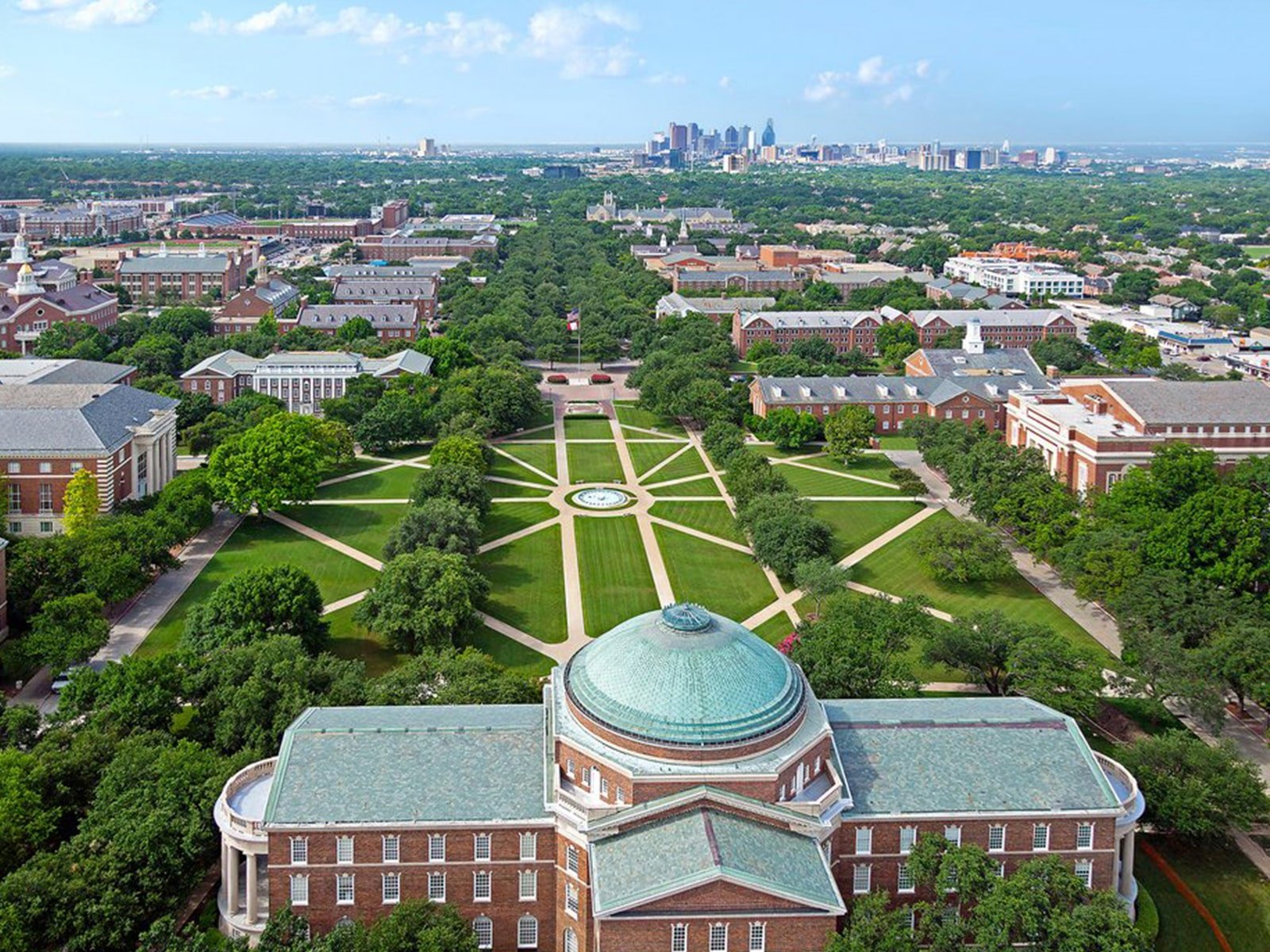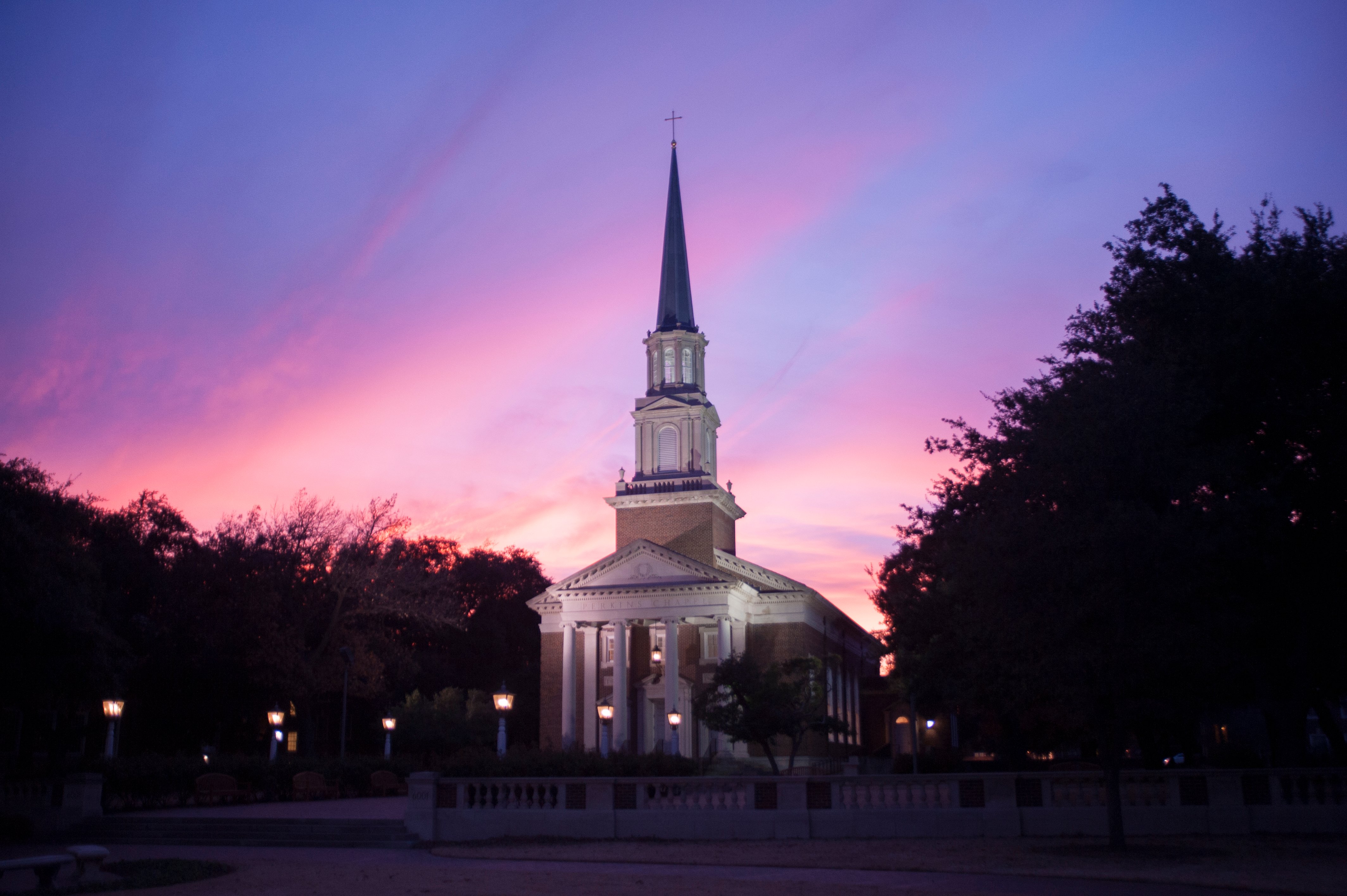Since the beginning of the church, God has placed specially-called people in leadership roles to shepherd the community of believers. These people don’t boast worldly importance or exceptional spirituality, rather they nurture their God-given gifts to lead the church in faith and humility.
Explore how to become a pastor directly from Perkins School of Theology alumni and learn how they discerned their calling to enter pastoral ministry.
Hear From Alumni: Becoming a Pastor at Perkins
Perkins integrates diverse theological studies with practical ministry experience, setting you up with the theological and spiritual foundation you need to do ministry well. Hear from our graduates about their experience at Perkins and how it has shaped their calling into ministry.
Nicholas Jarome McRae (M.Div. ’20)
How has Perkins played a role in shaping your spiritual growth and formation?
“The opportunity for regular prayer, worship and fellowship with fellow students sustained me through the difficulties of seminary studies. That same prayer, worship and fellowship with others also formed me spiritually in a way that has lasted to today.”
What fears or obstacles did you face going into your degree?
“I feared "starting over" since I had invested years of my life in being educated in English (BA, MFA, PhD) with the goal of being a creative writing professor. I faced the challenge of figuring out if and how we could afford seminary. Finally, my wife and I made the mutual decision that I would attend seminary and pursue ministry as long as we could find a way to do it without going into debt. We trusted that God would open a way for us if it were his will for me to be a pastor. I'm happy to say that he did exactly that.”
Faith Overcoming Fear and Self-doubt
In his first letter to the Thessalonians, Paul encourages the church to “pray without ceasing.” (1 Thess. 5:17). Connecting to God in a community of believers is key to maintaining a faith that acts. If you are afraid of taking a leap of faith to follow God’s call, talk to people in your community. The fears you may face before enrolling are intimidating, but your community is there to help you figure out the solutions. The church is there to support you, pray with you, and encourage you to cultivate the call God has on your life.
Although the thought of attending seminary can be daunting, know that another community of believers is waiting to encourage you at Perkins School of Theology. Your cohort, your professors, and everyone worshiping together at Perkins Chapel are there for you as you develop a rich contemplative life, grow in your knowledge of God and work through your education and ordination.
As you grow spiritually at Perkins, be on the lookout for mentors who will guide you as you develop skills in pastoral care and servant leadership. They will help you through tough classes and life events as well as encourage you through the ordination process.
Rosedanny Ortiz Hernández (M.Div. ’21)
How did you come to feel God was calling you to pastoral ministry?
“There was a time when I was finishing my bachelor’s degree when I was focusing more on my faith by attending church than studying for my engineering exams. So, I began to serve God with a different motivation, and it was there that I started to feel more passionate about ministry than engineering. I felt in my heart that being in ministry was all that I needed.”
How has Perkins played a role in shaping your spiritual growth and formation?
“Perkins provided me with the opportunity to expand my knowledge about God and gave me clarity in shaping my theology. It helped me grow in my faith in a powerful way. My journey at Perkins has positively shaped the person I am today, encouraging me to continue to be curious, bold and courageous. It has also encouraged me to use the gifts that God has given me to lead the church of today.”
Knowing God More and More
Theological education is all about one thing: knowing God. Like in English, the Hebrew word for “to know” (yāḏa)ʿcan mean knowing something, in an academic sense, or knowing someone relationally. When you attend Perkins School of Theology, studying God becomes a life-long project in knowing God, both academically and personally.
The more you learn in classes about God’s history and character the more inspired you are to talk to, worship and grow close to God. It’s for this reason, Perkins provides so many spaces for students to connect to God on campus. Worship with your cohort twice a week in Perkins Chapel, pray in the Perkins Prayer Room, and meditate as you walk the Ruben L. F. Habito Prayer Labyrinth.
Eunbyul “Stella” Cho (M.Div. ’24)
What made you decide that the M.Div. program at Perkins was the right fit for you?
“Believing I was called to preach God's Word globally, I knew overcoming language barriers was essential. To fulfill this calling, I moved from Korea to study at Perkins School of Theology in Texas. Despite facing challenges with new people, situations and languages, the support and love from the school community allowed me to study, gratefully, for four years. I am thankful for the opportunity to strengthen my calling here, surrounded by excellent faculty, staff and classmates. Additionally, having alumni pastors in the field is a blessing as I continue my ministry journey.”
Is there any advice you would offer to those feeling the call to pastoral ministry and considering Perkins School of Theology for their education?
“Just as God commanded Abraham, sometimes God calls us to step out of our comfort zones and venture into unknown lands for God's purposes. As Christians and future pastors, if you are ready to say, "I will go wherever God calls me," and seek training for that mission, I would say this school is the perfect place to be equipped with great people and in a nurturing environment.”
Following God’s Call into the Unknown
There are a lot of call stories in the Bible, but ultimately everyone’s call is like Abraham’s: to “Go to the land [God] will show you” (Gen. 12:1). Few, if any, people know exactly how God will use them over the course of their lives. All you can do is take the next right step.
If you know God is calling you to something more, something related to ministry, then theological education is right for you. It might mean a big move, a change in schedule, a new plan for your life or even jumping head-first into the unknown. But, God’s Word is worth leaving all the knowns in your life behind for the sake of knowing God. If God is doing a new thing in you, put down your nets and follow.
The Master of Divinity Degree at Perkins School of Theology
Perkins’ Master of Divinity (M.Div.) degree prepares students to become faithful leaders in ministry. It’s designed primarily for students who plan to be ordained clergy and serve as pastors in the order of elder, those who attend to Word, sacrament, service and order. It also offers a comprehensive biblical and theological education for anyone hoping to serve in specialized ministries, such as missions, parachurch ministries or education.
If you have an undergraduate degree in any area, and you’re interested in serving the church and the world, this degree is for you. The program includes 75 credit hours of purposeful theological education plus a supervised internship, with available concentrations in areas like the Black/ Africana church, healthcare chaplaincy or pastoral care.
The Doctor of Ministry Degree at Perkins School of Theology
Sometimes answering your call can be interrupted by the everyday challenges of serving a church, which is why Perkins offers its Doctor of Ministry (D.Min.) degree. The Doctor of Ministry degree provides advanced study in vocational and leadership formation and community building.
Integrating theological reflection and ministerial practice with these areas of study, Christian leaders build their theological knowledge and gain skills to engage effectively in ministerial work in contexts of change and transition. If you’re interested in advanced education to shore up your leadership skills and offer a strong community of support, consider pursuing a Doctor of Ministry degree.
Strengthening Servant Leadership Skills at Perkins School of Theology
If you feel this calling to serve and lead a spiritual community, becoming a pastor may be the right step for you. Pursuing a pastoral vocation is a rewarding yet challenging path. From developing liturgical skills to fostering spiritual growth and providing compassionate pastoral care, pastors must build many diverse skills to properly lead their congregations.
Perkins School of Theology prepares pastors to lead with servant mindsets for their congregation. Future Methodist leaders choose a Perkins education time and time again, with 4 out of 5 of the largest broadly Methodist churches in the South led by our graduates.
Here, we will strive to help you discern, utilize and test your gifts. You too can become a pastor at Perkins. Know that we will guide and equip you with the skills needed to practice pastoral care and answer your call to ministry.






